
by Elizabeth Atalay | Dec 16, 2014 | 2014, Africa, Awareness, Being Thankful, Casting a Wider Net, Culture, Economy, Eye on Culture, Holiday, Humanitarian, Humanity, India, Inspirational, International, Kenya, Kids, Life, Marketing, Motherhood, Multicultural, ONE, Philanthropy, Poverty, Social Good, Travel, Uganda, Womanhood, Women's Rights, Working Mother, World Voice

In October, several #WorldMoms attended the ONE Girls & Women AYA Summit at the Google Headquarters in Washington, DC. One of the many powerful panels we heard from was entitled Change Through Economic Opportunity, where both major fashion companies and small start-ups weighed in on how they impact the lives of women through economic empowerment. With the holiday season upon us, World Moms decided to share some of the ways we love to use our purchasing power to give back, and how you can too.

Sydney Price of Kate Spade NY spoke about the Kate Spade On Purpose line at the AYA Summit panel. Each piece in this collection is handcrafted in Rwanda creating sustainable economic opportunities for women and reshaping their community.

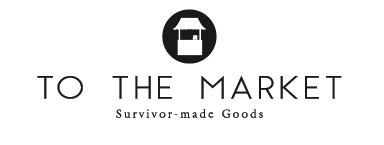 Jane Mosbacher Morris , founder of To the Market, also participated in the panel on Change Through Economic Opportunity at the AYA Summit. To The Market provides a marketplace for the beautiful handcrafted goods that give women survivors of war, disaster or abuse a chance to support themselves and their families.
Jane Mosbacher Morris , founder of To the Market, also participated in the panel on Change Through Economic Opportunity at the AYA Summit. To The Market provides a marketplace for the beautiful handcrafted goods that give women survivors of war, disaster or abuse a chance to support themselves and their families.

 World Moms Elizabeth Atalay and Nicole Melancon had the pleasure of visiting the FashionABLE factory in Ethiopia this past summer and we have all been writing about and wearing the gorgeous scarves made in Ethiopia for years. It was great to finally meet founder Barrett Ward at the AYA Summit this past fall where he participated on the panel as well. FashionABLE is now expanding operations to include products made in Kenya and a beautiful line of leather products, all while providing social service programs of health care, education in a trade, and assistance with child care for their artisans to help them build better lives for themselves and their families.
World Moms Elizabeth Atalay and Nicole Melancon had the pleasure of visiting the FashionABLE factory in Ethiopia this past summer and we have all been writing about and wearing the gorgeous scarves made in Ethiopia for years. It was great to finally meet founder Barrett Ward at the AYA Summit this past fall where he participated on the panel as well. FashionABLE is now expanding operations to include products made in Kenya and a beautiful line of leather products, all while providing social service programs of health care, education in a trade, and assistance with child care for their artisans to help them build better lives for themselves and their families.
“Through your purchase, you are ABLE to provide opportunity, and a woman is ABLE to have a new choice.”-LiveFashionABLE
The Giving Keys provides jobs for those transitioning out of homelessness, giving them the opportunity to rebuild their lives. The necklaces & bracelets are super cool as is the message of the Giving Keys:
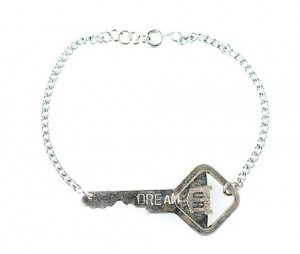
“When you get this Key, you must give it away at some point to a person you feel needs the message, then write us the story of why you gave it away. We employ those looking to transition out of homelessness.” -The Giving Keys
You can read Giving Keys stories of those who have given and received keys on their site.
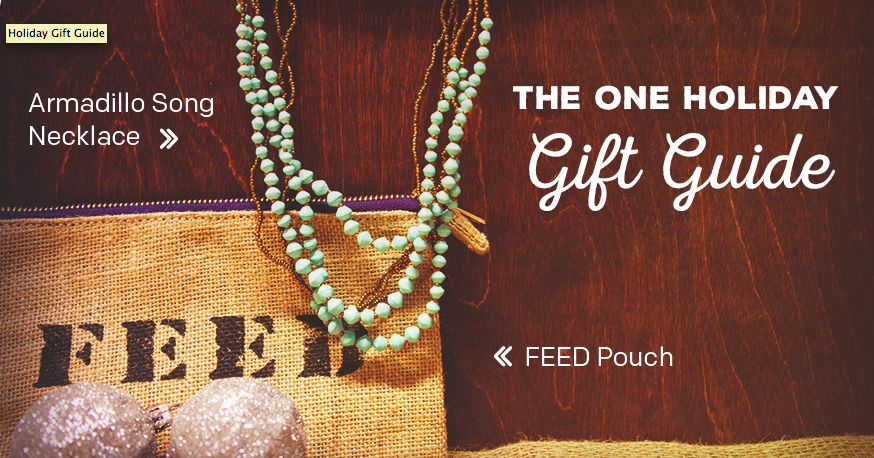
Shop the ONE Campaign store Holiday Gift Guide for some fabulous items where you know everything is fair trade and ethically sourced. By doing so you support the ONE Campaign in it’s goal of eradicating extreme poverty.
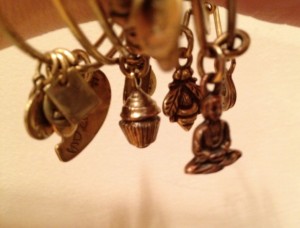
Alex & Ani Bracelets
Alex & Ani Charity by design products are another of our favorites. A percentage o profits goes back to designated non-profits. Their products are made in the USA from recycled materials, and spread the message of positive energy! They have branched out from bangles to key chains, and candles, wine charms & more!
From South Africa, The Mielie bags employ women of the townships in South Africa.
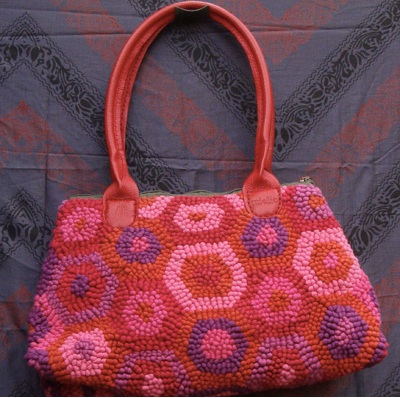
Mielie Bag Made in South Africa
Our mission is to design and produce innovative, export-quality hand-crafted products using reclaimed materials – with the aim of creating employment and restoring dignity and financial independence to South Africans.- Mielie
The Anchal Project Mission merges design, business, and education to empower marginalized and exploited women living in India. Their scarves are gorgeous and the company was founded by two Rhode Island School of design Grads.
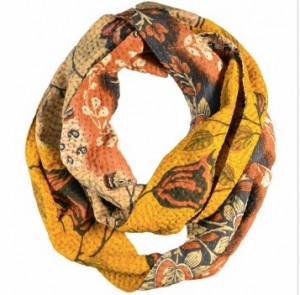
Anchal Scarf
Anchal is an Indian word that means shelter, or refers to the edge of a woman’s Sari used to provide comfort and protection for loved ones.-Anchal Project
Kids Books from Little Pickle Press, a B Corporation, are some of our favorite books for kids!

Lollie Beads Bracelets are created from fair trade recycled glass beads made in Uganda. So they are not only gorgeous (the glass beads look and feel like sea glass) but they are good for the environment AND help support sustainable living in a developing country.

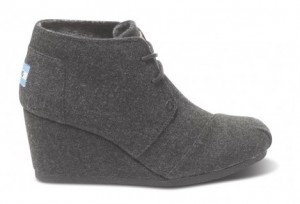 Tom’s keeps its designs fresh while still managing to provide shoes and glasses to those who need them. We love their One for One business model (and pledge to support it with as many shoes as we can get away with!)
Tom’s keeps its designs fresh while still managing to provide shoes and glasses to those who need them. We love their One for One business model (and pledge to support it with as many shoes as we can get away with!)
 1000 Shillings Ugandan Paper bead necklaces. The women artisans earn capital for their own small businesses by making limited-edition products for 1000 Shillings. Each product sold through 1000 Shillings helps a woman establish a small business, which enables her to support her family. They also aim to tell the in-depth story behind each artisan. The company works with six single mothers in the Namatala slum, Uganda.
1000 Shillings Ugandan Paper bead necklaces. The women artisans earn capital for their own small businesses by making limited-edition products for 1000 Shillings. Each product sold through 1000 Shillings helps a woman establish a small business, which enables her to support her family. They also aim to tell the in-depth story behind each artisan. The company works with six single mothers in the Namatala slum, Uganda.
A Gift As A Gesture:
Sometimes it is hard to find the perfect gift for someone who has every material thing they desire. Still you want to give something as a token of your appreciation to them and the below gifts are the perfect solution that everyone can feel good about.
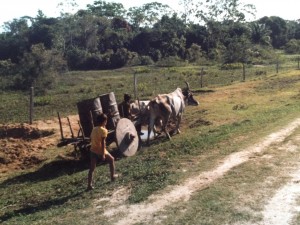
Photo by Elizabeth Atalay
Heifer International :
“Heifer International’s mission is to work with communities to end hunger and poverty and care for the Earth. It all started with a cow. Moved by the plight of orphans and refugees of the Spanish Civil War as he ladled out meager rations of powdered milk, Dan West, an Indiana farmer, volunteer relief worker and Church of the Brethren member, grasped that the people needed “a cow, not a cup”—cows that could produce milk so families would not have to depend on temporary aid. From that simple idea, Heifer International was born.” – From the Heifer International Website
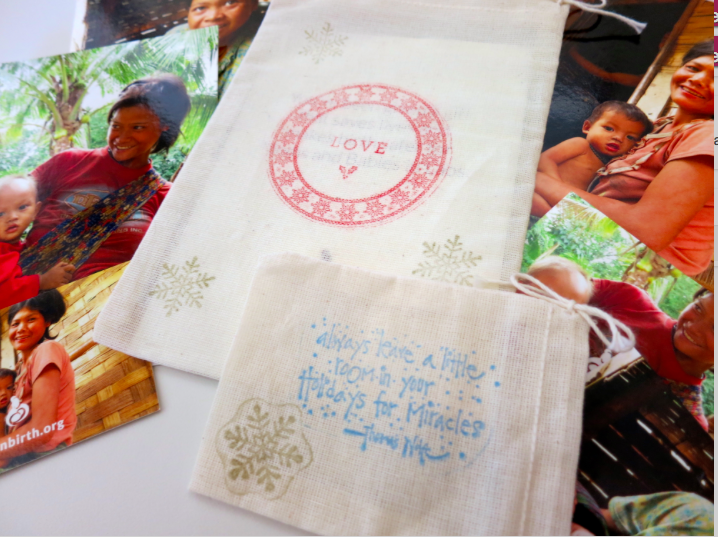 Save two lives, those of a mom and her newborn baby, with CleanBirth.org and the perfect holiday gift of Bags of Love and Miracles, a handmade bag with a beautiful full-sized honor card inside ($20) and 4 mothers in Laos will receive birthing supplies and safe birthing education.
Save two lives, those of a mom and her newborn baby, with CleanBirth.org and the perfect holiday gift of Bags of Love and Miracles, a handmade bag with a beautiful full-sized honor card inside ($20) and 4 mothers in Laos will receive birthing supplies and safe birthing education.
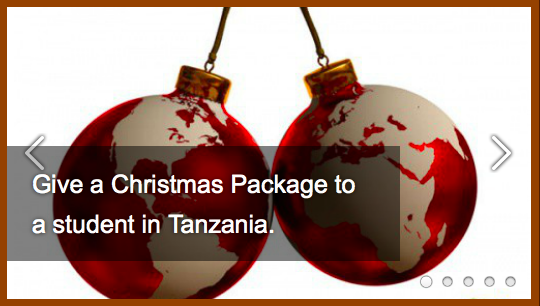
Mom2Mom Africa is a Canadian Not-for-Profit Organization, established to help empower women and children through education. The benefits of education and global awareness apply to us all. Your gifts this season will help to buy books, school uniforms and school supplies for the Mom2Mom Africa students in Tanzania.
Wishing Happy Holidays to You All,
May You Give As Good As You Get!
Do you know other organizations or shops that belong on this list?

Elizabeth Atalay is a Digital Media Producer, Managing Editor at World Moms Network, and a Social Media Manager. She was a 2015 United Nations Foundation Social Good Fellow, and traveled to Ethiopia as an International Reporting Project New Media Fellow to report on newborn health in 2014. On her personal blog, Documama.org, she uses digital media as a new medium for her background as a documentarian. After having worked on Feature Films and Television series for FOX, NBC, MGM, Columbia Pictures, Warner Brothers, 20th Century Fox, and Castle Rock Pictures, she studied documentary filmmaking and anthropology earning a Masters degree in Media Studies from The New School in New York. Since becoming a Digital Media Producer she has worked on social media campaigns for non-profits such as Save The Children, WaterAid, ONE.org, UNICEF, United Nations Foundation, Edesia, World Pulse, American Heart Association, and The Gates Foundation. Her writing has also been featured on ONE.org, Johnson & Johnson’s BabyCenter.com, EnoughProject.org, GaviAlliance.org, and Worldmomsnetwork.com. Elizabeth has traveled to 70 countries around the world, most recently to Haiti with Artisan Business Network to visit artisans in partnership with Macy’s Heart of Haiti line, which provides sustainable income to Haitian artisans. Elizabeth lives in New England with her husband and four children.
More Posts
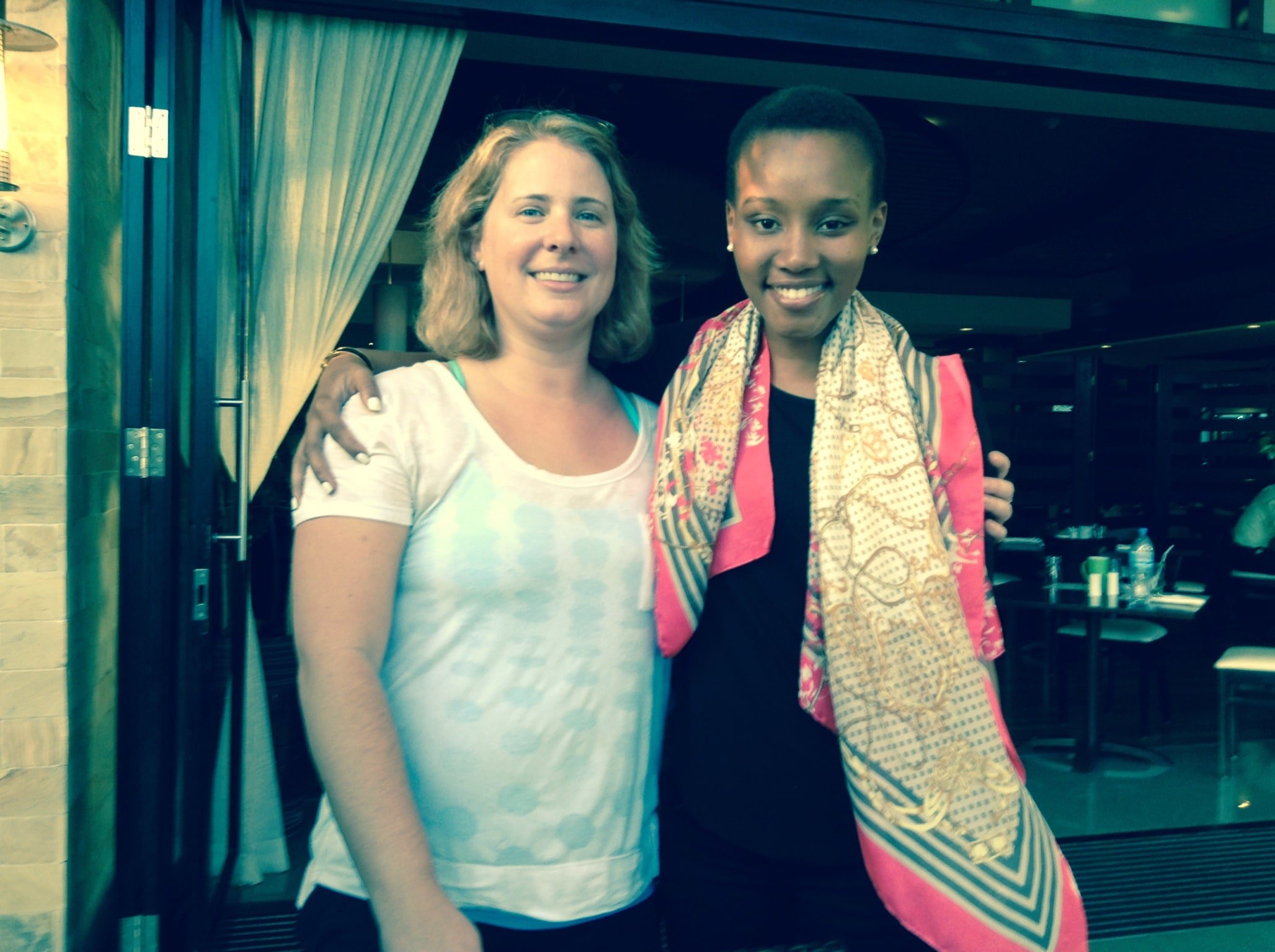
by Alison Fraser | Dec 1, 2014 | Africa, AIDS, Canada, Family, Health, Human Rights, Humanity, Nancy Sumari, ONE, Social Good, World Voice
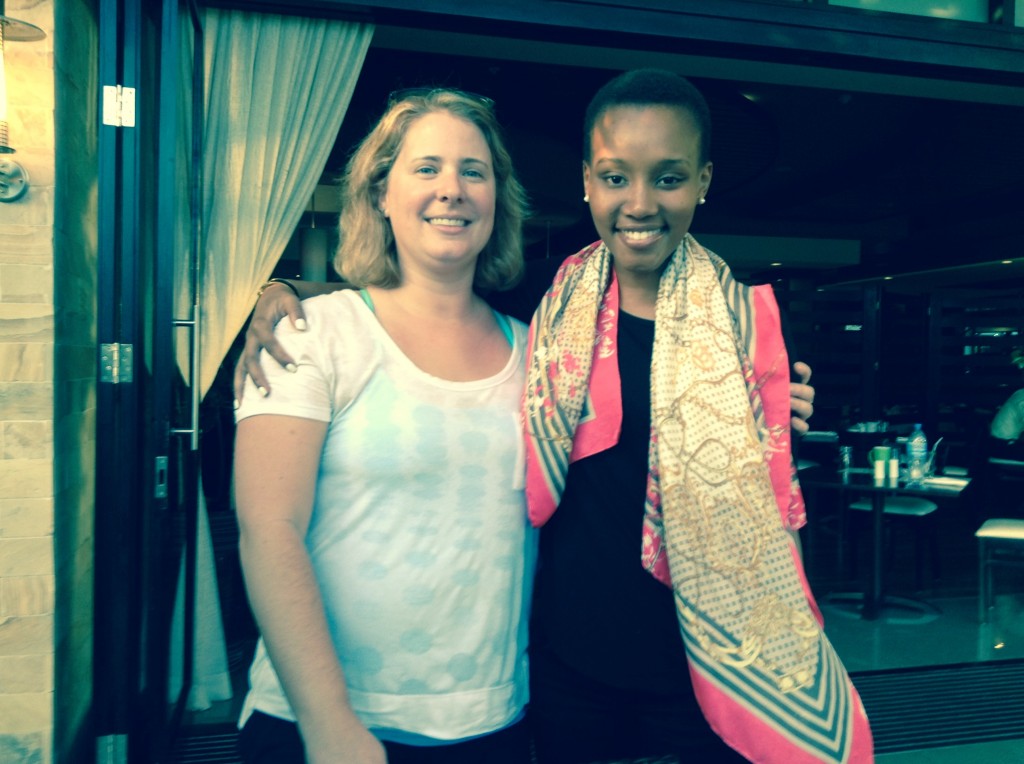
I am by no means an expert on HIV or AIDS. In fact, other than knowing some basic statistics and facts on transmission, I have never really given much thought to the social implications of living with the virus. This wasn’t intentional, but most likely the result of the small bubble in which I was living for most of my life; a bubble that did not include any friends or family directly affected by the virus. That all changed, last November, when I visited Arusha, Tanzania to meet some of the students in the Mom2Mom Africa Organization, a small not for profit that I founded several years before. I knew some of our students came from families in which some members were positive. Some were left orphaned by the disease. But what I didn’t realize was how this impacted these children in terms of treatment by their local community, regardless of their HIV status. I learned of children who were shunned by the church because the deaths of their parents was attributed to AIDS. I learned of other families shunned by their own relatives for the same reason. In some instances, the children were not even aware of why their parents died. It was hidden to protect them.
I left Tanzania with a heavy heart, but it was made heavier by the stories of the struggles of some of our students because of the AIDS pandemic. I had suspected that discrimination existed but I now had little faces associated with that discrimination haunting me, making it more real. Students are accepted into Mom2Mom Africa regardless of HIV status…I can think of operating no other way. In fact, we only request medical information so we can provide the appropriate health care.
I was now beginning to understand that this virus was not only killing people, but leaving behind families to deal with the shameful treatment by society.
Our affected students not only required extra medical attention, but also more emotional support.
I began to wonder if those affected by HIV/AIDS in Canada feel the same degree of isolation. Did being HIV positive in Canada carry with it the same stigma as in Tanzania? I decided to find out. Speaking to the AIDS Committee of Cambridge, Kitchener, Waterloo & Area (ACCKWA), I learned that, unfortunately, Canadians often face the same discrimination and stigma. Although laws are in place to help prevent discrimination, it still occurs. Many of those affected by HIV are judged, and often blamed for their HIV status. Thankfully, there are support groups such as the ACCKWA that provide a safe place and much-needed services to those living with HIV in our local community.
After speaking to ACCKWA, I contacted my friend, and fellow World Moms Blog contributor, Nancy Sumari to discuss what support services are in place for those living with HIV, and their families, in Tanzania. Nancy is part of the “I am Positive” Campaign in Tanzania. The campaign was established in response to reports by those living with HIV of being discriminated against and, in some cases, being physically assaulted and emotionally abused because of their HIV status. The campaign has several main objectives, but the one that hit home the most was:
“To live with HIV/AIDS is NOT to live without human rights and dignity”.
The power of that message is not only incredible, but universal. Regardless of what country you live in, what part of the world you live in, and what your HIV status is, you have the right to basic human rights and to live with dignity. We ALL deserve this.
As I reflect on this past year, and what I have learned about the realities those living with HIV face each and every day, I can’t help but dream of a day when the stigma no longer exists; a day when judgement and discrimination are replaced with support and understanding. Or better yet, I dream of a day when HIV and AIDS move from pandemic status to curable infection. But, until then, I hope that empathy prevails for all those living with HIV, as well as for their families.
This is an original post written by Alison Fraser for World Moms Blog.
Alison Fraser is the mother of three young girls ranging in age from 5 to 9 years old. She lives with her family in Cambridge, Ontario, Canada. Alison works as an Environmental Toxicologist with a human environment consulting company and is an active member of the Society of Environmental Toxicology and Chemistry (SETAC). She is also the founder and director of the Canadian Not for Profit Organization, Mom2Mom Africa, which serves to fund the school fees of children and young women in rural Tanzania. Recently recognized and awarded a "Women of Waterloo Region" award, Alison is very involved in charitable events within her community including Christmas Toy and School Backpack Drives for the local foodbank.
More Posts - Website
Follow Me:


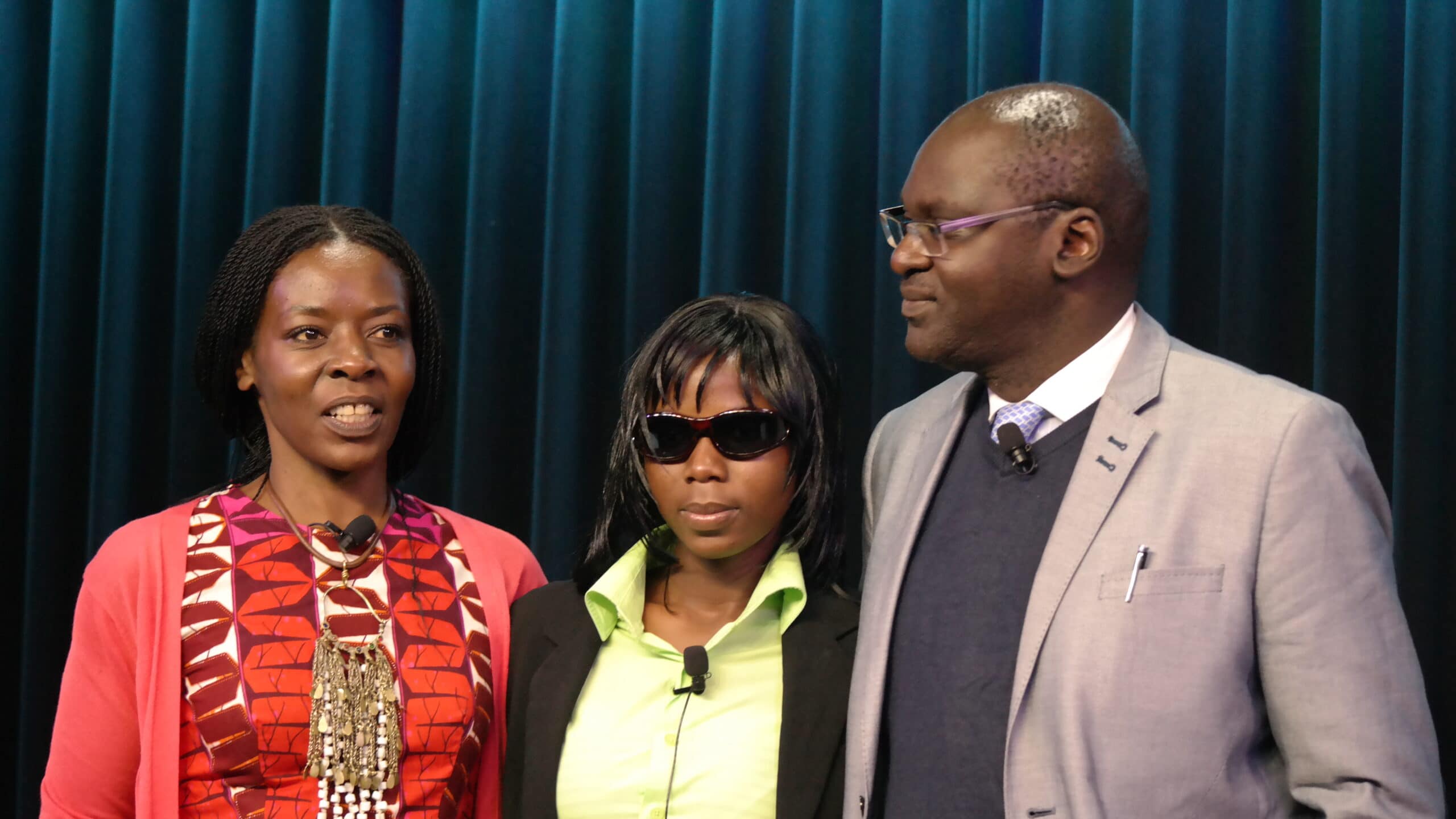
by Cindy Levin | Nov 25, 2014 | 2014, Africa, Awareness, Education, Girls, Human Rights, Humanitarian, Social Good, World Moms Blog, World Voice
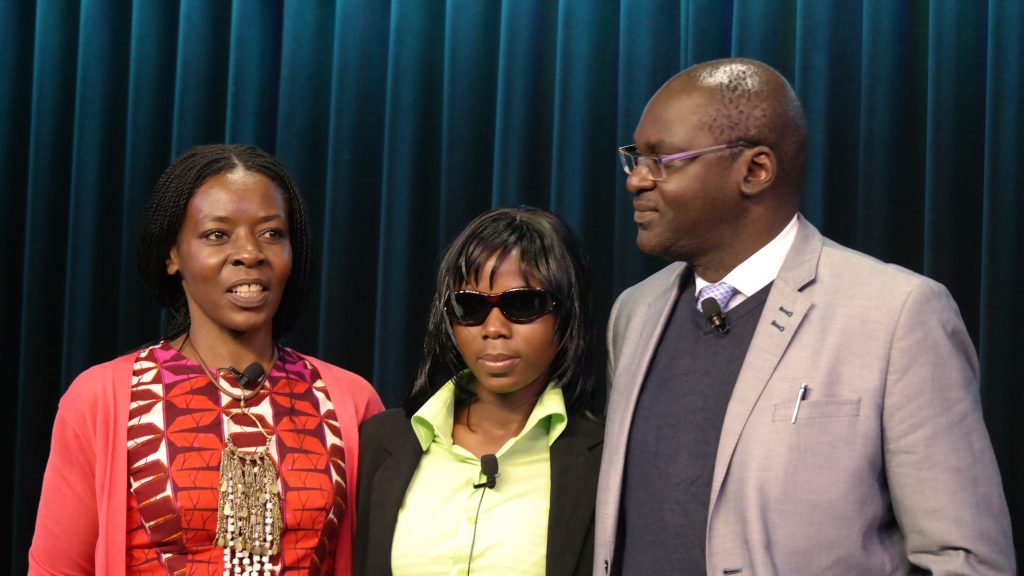
They sat in the back row of the ONE Campaign’s AYA Summit with me in Washington D.C., keeping to themselves and wearing sunglasses in an already darkened room. A computer on their laps, two teenage girls whispered to one another as together we watched videos and heard speakers talking on all ranges of topics affecting girls and women around the world. Vaccines, education, access to electricity, human trafficking, genocide…it was both a heavy and inspiring range of topics as speakers bounced back and forth between storytelling about problems and discussing solutions. Sitting with them and trying (unsuccessfully) to engage them in friendly conversation during breaks, I had no idea how intimately these topics were affecting their lives…
I sat in the back because back row chairs sit beside outlets and I could recharge my phone easily. They sat in back shadows for a very different reason. Because of uncertainty…a desire for anonymity…maybe even fear. One of the two had more immediate reason for concern than the other. Without our knowledge, she was nervously waiting all day for her turn to speak to us and tell us her story.
Her name was Saa* and seven months ago she was kidnapped by Boko Haram from her school in Nigeria.
Last April, the whole world exploded in outrage demanding for these terrorists to #BringBackOurGirls. And then…we heard nothing. Governments searched. Leaders demanded. Parents wept. And we heard nothing.
Then, as if out of the blue, Saa appeared in our midst ready to speak at the AYA Summit to a group of parents armed with laptops and 45 million social media followers.
This is her story.
On April 14, kidnappers from the terrorist group Boko Haram entered Saa’s school in Chibok with a plan to capture all the girls who studied and slept at her school. At 11:30PM, Saa and her classmates heard terrible noises of violence. Scared, she called her father and asked what she should do. He told her to stay where she was and wait for help.
No help came.
Collecting all the girls to a common area, kidnappers started burning everything from the school. Surrounded by weapons, the girls were told if they shouted or ran away, they would all be killed. Gunmen started demanding information about the location of a local mission, the location of the boys in the school (there were no boys), and where the school kept food. Two girls showed them where the food was and the guards emptied the store of food supplies.
They forced them away from the school and gathered them under a big tree, bringing vehicles including small cars and big trucks. The girls were ordered to enter big, high trucks by climbing up upon a small car and into the truck. “They said if any girl did not want to go into the trucks, she should come out and they would kill her,” Saa told us. After moving to another village, they moved the girls from trucks and started filling the car with the girls sitting on laps. There was not enough room for everyone to sit and three girls were left outside. The men asked the first girl if she was Muslim or Christian. She was Muslim, so they moved on and asked the same of the next girl who – despite being Christian – replied that she was Muslim out of fear for what they might do to her. When the third girl admitted that she was Christian under questioning, one of the kidnappers decided he should kill her right there and let the Muslim girls go. Other kidnappers fortunately intervened and convinced him not to kill her then, and there. Amazingly, those three girls were released for lack of room, but told not to turn back or everyone would be killed. Those girls ran away to the town.
As the vehicles started to travel and moved past one village, a few girls started to jump from the trucks. Saa decided for herself that she would rather jump and die than face the uncertainty of what lay ahead. She told her plan to friend saying, “I would rather that my parents have to bury me in a coffin.” Her friend agreed to jump, too. The truck continued through the middle of a forest in the dark with cars following behind. The girls waited for an opportunity when the following cars were not within sight then leapt from the trucks, Saa first and then her friend. After the jump, Saa discovered her friend had injured her leg and was unable to move very far. She helped her friend into the forest away from the road, so they would not be discovered. They moved as far as they could and slept in that spot until morning.
In the morning – with her friend still unable to travel – Saa sought out help. The first person Saa met was a shepherd. She asked him for help, but he refused out of fear for his own safety. He advised them to wait until 9 or 10 AM when some people may travel that way going to market and possibly help them. Saa argued that not many people would come by because the violence from the night before would make them afraid to come. They must move quickly because the “bad people” may follow that road again. Finally, he agreed to help and carried Saa’s friend on a bicycle.
On the road, they did meet people who were coming to look for their daughters who helped bring the girls back to Chibok. Then, they went back to their hometown. When they arrived home, Saa was reunited with her parents who met her in tears. All of her relatives were weeping because of the ordeal.
Saa didn’t cry as she related her story. She spoke softly and quickly in a matter-of-fact manner. I wondered how many times she had told her story and if sticking just to the facts helped her remain detached enough to get the story out. Even though this was only the second time she had spoken publicly about it, I imagine she must have related it many times to her family and to authorities trying to glean clues to recover her classmates who are still missing.
In the audience, we sat in shock…surprised to be in her presence and horrified by the audacity of Boko Haram to violate their freedom in this way. Most of us were mothers who had a very visceral reaction to the thought of someone stealing our daughters away in the night to be sold, raped, married, or killed.
I thought about that horrible conversation Saa’s father in which he faced a terrible choice of how to advise his daughter over the phone. Would you tell your daughter to run and risk her being shot in the back? Or would you tell her to wait for help, knowing that she might be trafficked and violated if no one comes to help? I thought about the shepherd, afraid for his life. He balked, but did the right thing in the end. I admired Saa’s skillful persuasion in arguing with him to provide aid and her courage to leap from a moving truck in the midst of a forest full of danger from animals and humans.
To my horror, on my Twitter feed that very night as we gathered around Saa to thank her for her courage and her story, I saw 25 more girls had been captured by these monsters. In a video delivered 200 days after Saa’s kidnapping, Boko Haram leaders scoff at the idea at negotiating for release along with ceasefire agreements. The group’s leader, Abubakar Shekau, flanked by gunman reportedly said, “The issue of the girls is long forgotten because I have long ago married them off…Don’t you know the over 200 Chibok schoolgirls have converted to Islam? They have now memorized two chapters of the Koran.” According to A World At School, Boko Haram claims to be holding 500 women and girls against their will.
I write this blog because the issue of the 219 Chibok schoolgirls is not forgotten. Not by Saa. Not by me. Not by a long shot. Saa told her story and gave us permission to use her picture for a very specific reason…to have us share it with others. If sharing her picture and her story is a way to get people to remember why we stand up for girls’ education and why the U.S. should put pressure on the Nigerian government to stop these atrocities and recover the victims, then that’s what I will do. And that’s what I ask you to do.
1. Continue to use the #BringBackOurGirls hashtag on Twitter. When you see news about it, tweet it to your networks and your members of Congress
2. Use Saa’s story and write your own blogs or letters to the editor about it to keep it in the media and social media
3. Be a champion for global girls’ education. As I said in my World Moms Blog post last may, What Can Americans Do for Abducted Nigerian Schoolgirls?, “The welfare of the kidnapped girls rests in someone else’s hands in the short-term, but I advocate against poverty and injustice wth an eye for the long-term. While we wait and we pray for these girls, shouldn’t we be using this anger and anguish to secure a future for all girls?”
I’d like to leave you with a happy thought about Saa’s education. Saa, her friend, and two other escaped Chibok schoolgirls have been brought to the United States where they will be able to study freely alongside other young women who don’t know what it means to live in fear for the right to learn. Her family knows she is safe. Her future is in her own hands. But she continues to fear for her classmates…as do we all. Read her story again. Think on it. Then, act on it.
*”Saa” is a pseudonym she uses for her own protection
This is an original post written by Cindy Levin for World Moms Blog.
Cynthia Changyit Levin is a mother, advocate, speaker, and author of the upcoming book “From Changing Diapers to Changing the World: Why Moms Make Great Advocates and How to Get Started.” A rare breed of non-partisan activist who works across a variety of issues, she coaches volunteers of all ages to build productive relationships with members of Congress. She advocated side-by-side with her two children from their toddler to teen years and crafted a new approach to advocacy based upon her strengths as a mother. Cynthia’s writing and work have appeared in The New York Times, The Financial Times, the Washington Post, and many other national and regional publications. She received the 2021 Cameron Duncan Media Award from RESULTS Educational Fund for her citizen journalism on poverty issues. When she’s not changing the world, Cynthia is usually curled up reading sci-fi/fantasy novels or comic books in which someone else is saving the world.
More Posts - Website
Follow Me:

by Aisha Yesufu | Nov 19, 2014 | 2014, Africa, Awareness, Being Thankful, Education, Family, Life Lesson, Motherhood, Nigeria, Parenting, Priorities, Responsibility, World Motherhood
 Taking responsibility for our actions is not always easy to do. It is funny how you see someone go on about the enemies in her life, who have denied her the success she so deserves.
Taking responsibility for our actions is not always easy to do. It is funny how you see someone go on about the enemies in her life, who have denied her the success she so deserves.
People spend more of their time and prayers focused on their enemies than on themselves. They cast and bind those enemies. They go to all lengths to unravel their enemies when all they need do is stand in front of the mirror and recognize the enemy before them. When we blame others, we become our own enemies.
We should learn always to take responsibility for our actions. When we take responsibility for our actions, it means the solution lies within us, but when we blame somebody else, it means that only the other person can find a solution to the issues.
If you fail at anything, accept it; learn from it. If you do not get a promotion, or even lose a job, find out what you did wrong. Learn from it to help you get the next promotion or to keep the next job. Do not blame your boss, your stepmother, half-brother or sister, the old woman in your village, your neighbor, your in-laws or the most-blamed devil. Just accept responsibility.
If we are not taught to take responsibility as children, we grow into adults who won’t take responsibility. Most of us struggled to get where we are today, and we want to protect our kids from the struggles of life–forgetting it was those struggles that helped make us who we are.
As parents, we have to allow our kids to be responsible for their actions. We have to allow them learn from their mistakes. There is no ideal world. They have to learn from the UNIVERSITY OF HARD KNOCKS i.e., LIFE. We cannot protect them from life; we have to allow them to live life.
A friend, whose 2-year-old son had broken his favourite cup, went to great lengths to find him a replacement, even to the extent of meeting the person who had given him the cup as a party favour.
I pointed out to her the need for allowing her child to be responsible for his actions. He breaks his cup, he loses it, and he learns that to keep a cup, he has to be careful with it.
I pointed out that unless there is a place where one can total one’s car and walk in and get a replacement free of charge, then she should let him learn by not providing a replacement.
Failure, they say, is not falling down. It is staying down.
People who take responsibility for their actions learn from their failures, and you rarely see them complaining. They are the ones who look as if everything goes smoothly for them. They never seem to have any problems.
So, the next time you feel the urge of blaming anyone else or making excuses why something is not going the way you want, just remember when you blame another you take away the power of solution from your hands.
This is an original post to World Moms Blog from our new writer in Nigeria, Aisha Yesufu.

by Karien Potgieter | Nov 5, 2014 | 2014, Africa, Being Thankful, Exercise, Family, Health, Kids, Life Balance, Motherhood, Nutrition, Parenting, Priorities, Running, Siblings, South Africa, Working Mother, World Moms Blog Writer Interview, World Motherhood, Writing
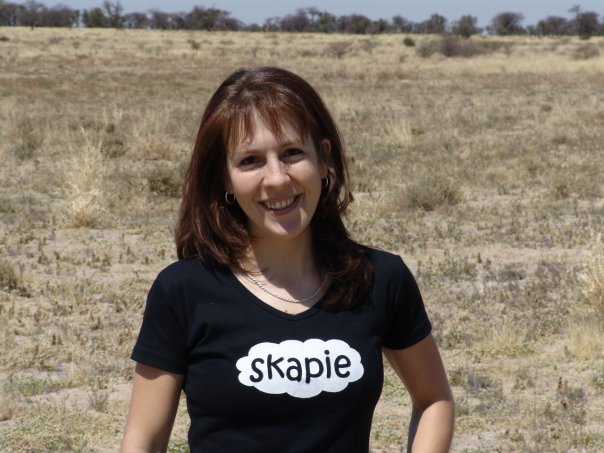 Where in the world do you live? And, are you from there?
Where in the world do you live? And, are you from there?
I live in Kimberley, the diamond capital of South Africa. Kimberley is a smallish, dusty town that gets extremely hot in summer – living here sometimes requires a good sense of humour, ha! I was born and raised just a short distance from here – in Bloemfontein in Central South Africa.
What language(s) do you speak?
Our home language is Afrikaans, but I’m fluent in English as well. South Africa has 11 official languages, plus a number of unofficial ones, so I’m really far behind as far as that goes!
When did you first become a mother?
I was blessed with a beautiful, peaceful little girl at the beginning of 2012 at the age of 34. My son, a busy, happy little guy, was born 22 months later at the end of 2013. It’s been an overwhelming, busy and blessed two-and-a-half years – what an amazing adventure!
Is your work: stay-at-home mom, other work at home or do you work outside the home?
I’m in the very privileged position to work from home as an ecologist. I feel extremely blessed to be able to be here for my kids all day (we have a nanny who looks after them while I work) and be able to do a job that I love.
Why do you blog/write?
Writing is my passion – I love, love, love it! Combining writing with my other passions, namely my kids, running and healthy living, is pure bliss.
How would you say that you are different from other mothers?
I’m quite a health nut! At the age of two-and-a-half my daughter has never seen or tasted something like a soda and very rarely eats junk food – we just don’t keep it in our house. She and her brother both love fruits and veggies – perhaps because it’s all they know? I also love running with both kids in our double jogging stroller – it’s one of our favourite things to do!
What do you view as the challenges of raising a child in today’s world?
There are so many! Keeping them safe in a country known for its high crime rate; teaching them to value and accept themselves in a society where pressure is immense to be and look a certain way; teaching them to respect others in a world where respect for others is on the decline; teaching them to be active and take care of their bodies in a world where technology makes everything so easy… The list goes on and on. Only by grace!
How did you find World Moms Blog?
I love reading about other mothers’ experiences on this crazy adventure called motherhood. An online search led me to World Moms Blogs, where I’ve found so many inspirational stories about moms from all over the globe – I love it!
This is an original, interview post for World Moms Blog from our new writer in South Africa and mum of 2, Karien Potgieter. You can read more about Karien’s running adventures through life at her personal blog: Running the Race
Karien Potgieter is a full-time working mom of two toddlers. She has a master’s degree in ecology and works in the conservation sector in beautiful South Africa. Her other big passion, apart from her family and caring for the environment, is running. To date she’s participated in races on three continents and in six countries and she dreams of travelling to and running in many, many more. You can follow her and her family’s running adventures on her blog, Running the Race (http://www.runningtherace.co.za).
More Posts - Website
Follow Me:





by Jennifer Iacovelli | Nov 4, 2014 | 2014, Africa, Awareness, Blogging, Girls, Human Rights, Humanitarian, Inspirational, International, Maternal Health, Millennium Development Goals, ONE, Social Good, Vaccines, Womanhood, World Bank, World Moms Blog
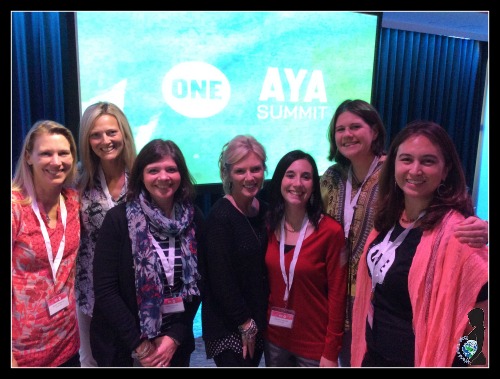
It has been almost two weeks since I attended the AYA Summit in Washington DC at Google’s offices with ONE, and I still feel a flood of emotion each time I think about the experience. As I wrote on my blog last week, the words to explain such a powerful and inspiring event are hard to come by.
The AYA Summit focused on issues facing girls and women in the developing world, with a special emphasis on Sub-Saharan Africa. The name AYA comes from an African Adinkra Symbol, which means fern and symbolizes endurance, resourcefulness and growth.
I, along with fellow World Moms Blog contributors Jennifer Burden, Elizabeth Atalay, Nicole Morgan, Nicole Melancon, Kelly Pugliano and Cindy Levin, sat in a room of about 80 bloggers and listened to inspiring panel after inspiring panel. In addition to thought-provoking conversations about human trafficking, the importance of vaccinations, electrifying Africa, making change through economic opportunities and the dire need to end Ebola in West Africa, we witnessed incredible performances by a young poet named Marquesha Babers and actress Danai Gurira.
Tears were shed. We were all moved and left wanting to do more for women and girls around the globe.
Why invite only bloggers to such a powerful event? According to this article from WUSA9 who covered the event, the combined audiences of our blogs exceeds 45 million and 28 states. As it was noted, “that kind of reach is priceless.”
There was a general theme of storytelling throughout the event. As bloggers, we have the ability to tell the stories of girls and women around the globe that the mainstream media simply cannot duplicate. We use our experiences as women, mothers and global citizens to lend our voices to those who don’t have a microphone and help others join in the conversation. We personalize the stories, talk about our concerns, and amplify the issues that media may not even be fully aware of or willing to devote the time to cover.
As Ginny Wolfe, Senior Director, Strategic Relationships at ONE, said at the very start of the AYA Summit, “We’re not asking for your money, we’re asking for your voice.” If you are reading this post, you can lend your voice too.
Though it is still hard to put into words what the AYA Summit meant to me, I thought I would share the highlights and key takeaways through a series of tweets during the event:
Read what other World Moms are writing about the event:
For more on the AYA Summit and the work that is coming from the event, visit and follow the AYA Summit 2014 Flipboard.
This is an original post written for World Moms Blog by Jennifer Iacovelli who also writes at www.anotherjennifer.com.
How will you or do you use your voice to stand up for those who are unable to speak up for themselves?
Jennifer Iacovelli is a writer, speaker and nonprofit professional. Based in Brunswick, Maine, she’s a proud single mom of two boys and one Siberian husky. Jennifer is the author of the Another Jennifer blog and creator of the Simple Giving Lab. Jennifer is also a contributing author of the book The Mother Of All Meltdowns. Her work has been featured on GOOD, BlogHer, USAID Impact, Feed the Future and the PSI Impact blog. Her latest book, Simple Giving: Easy Ways to Give Every Day, is available everywhere. Her passions are writing, philanthropy, her awesome kids and bacon, though not necessarily in that order.
More Posts




 Jane Mosbacher Morris , founder of To the Market, also participated in the panel on Change Through Economic Opportunity at the AYA Summit. To The Market provides a marketplace for the beautiful handcrafted goods that give women survivors of war, disaster or abuse a chance to support themselves and their families.
Jane Mosbacher Morris , founder of To the Market, also participated in the panel on Change Through Economic Opportunity at the AYA Summit. To The Market provides a marketplace for the beautiful handcrafted goods that give women survivors of war, disaster or abuse a chance to support themselves and their families.
 World Moms Elizabeth Atalay and Nicole Melancon had the pleasure of visiting the FashionABLE factory in Ethiopia this past summer and we have all been writing about and wearing the gorgeous scarves made in Ethiopia for years. It was great to finally meet founder Barrett Ward at the AYA Summit this past fall where he participated on the panel as well. FashionABLE is now expanding operations to include products made in Kenya and a beautiful line of leather products, all while providing social service programs of health care, education in a trade, and assistance with child care for their artisans to help them build better lives for themselves and their families.
World Moms Elizabeth Atalay and Nicole Melancon had the pleasure of visiting the FashionABLE factory in Ethiopia this past summer and we have all been writing about and wearing the gorgeous scarves made in Ethiopia for years. It was great to finally meet founder Barrett Ward at the AYA Summit this past fall where he participated on the panel as well. FashionABLE is now expanding operations to include products made in Kenya and a beautiful line of leather products, all while providing social service programs of health care, education in a trade, and assistance with child care for their artisans to help them build better lives for themselves and their families.
 Tom’s keeps its designs fresh while still managing to provide shoes and glasses to those who need them. We love their One for One business model (and pledge to support it with as many shoes as we can get away with!)
Tom’s keeps its designs fresh while still managing to provide shoes and glasses to those who need them. We love their One for One business model (and pledge to support it with as many shoes as we can get away with!) 1000 Shillings Ugandan Paper bead necklaces. The women artisans earn capital for their own small businesses by making limited-edition products for 1000 Shillings. Each product sold through 1000 Shillings helps a woman establish a small business, which enables her to support her family. They also aim to tell the in-depth story behind each artisan. The company works with six single mothers in the Namatala slum, Uganda.
1000 Shillings Ugandan Paper bead necklaces. The women artisans earn capital for their own small businesses by making limited-edition products for 1000 Shillings. Each product sold through 1000 Shillings helps a woman establish a small business, which enables her to support her family. They also aim to tell the in-depth story behind each artisan. The company works with six single mothers in the Namatala slum, Uganda. Save two lives, those of a mom and her newborn baby, with CleanBirth.org and the perfect holiday gift of Bags of Love and Miracles, a handmade bag with a beautiful full-sized honor card inside ($20) and 4 mothers in Laos will receive birthing supplies and safe birthing education.
Save two lives, those of a mom and her newborn baby, with CleanBirth.org and the perfect holiday gift of Bags of Love and Miracles, a handmade bag with a beautiful full-sized honor card inside ($20) and 4 mothers in Laos will receive birthing supplies and safe birthing education.
























